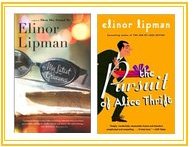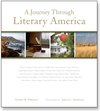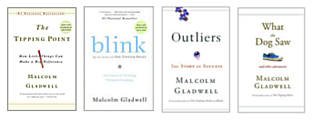 Jeeesh! Long time since I posted anything on this poor lonely blog. Why so long? Turns out, I’ve been reading...a lot.
Jeeesh! Long time since I posted anything on this poor lonely blog. Why so long? Turns out, I’ve been reading...a lot.
Which brings up an intriguing comment by Jonathan Franzen in the Sunday New York Times Book Review (6/6/10).
Haven’t we all secretly sort of come to an agreement...that novels belong to the age of newspapers and are going the way of newspapers, only faster?
As an old English professor friend of mine likes to say, novels are a curious moral case, in that we feel guilty about not reading more of them but also guilty about doing something as frivolous as reading them…
Okay, so it’s tongue-and-cheek. Or not. Still, I’m wondering...
Questions for Book Clubs
- Who’s “we”—as in “haven't we all secretly"? And why is it a secret agreement? Because nobody wants to talk about it?
- Does he really think the novel (printed and digital...or just printed) is on its way out? If so, what will replace it: graphic novels...or the Internet...or video games?
- Are novels "frivolous"? Has anyone told book clubs yet?
![]() If you love books on a certain theme…you’ll love Flashlight Worthy Book Recommendations, a new site that lists books thematically. So far the site has 370 different lists, in 50+ categories, with nearly 5,000 books. Here’s a tiny sample:
If you love books on a certain theme…you’ll love Flashlight Worthy Book Recommendations, a new site that lists books thematically. So far the site has 370 different lists, in 50+ categories, with nearly 5,000 books. Here’s a tiny sample:
Flashlight Worthy Lists
Books About . . .
Families in Fiction and Memoir
Women of Another Era
Abraham Lincoln
Dystopia
Crime Fiction–About Women By Women
Love–That Your Club Probably Hasn’t Read Yet
African-Americans–Not Just for Black History Month
WASPS
Madness We Can All Relate to
With the Sea in Sight
So head on over to the website to find some great ideas and recommendations for your book club…or just for yourself.
 You read ... and read ... and you read. And you think you’re pretty well up on authors.
You read ... and read ... and you read. And you think you’re pretty well up on authors.
Then you come across one who’s written 8 books—8 mind you!—and you don’t have a clue. You feel so, so ... can I say it... sob ... so UNREAD!!
That’s what happened with Elinor Lipman. Somewhere I came across her name. Hmmm ... that’s vaguely familiar, but only vaguely ... I check her out ... and holy cow! Stunned I am—by her body of work and the fine reviews she’s garnered over the years. So where have I been?
Why isn’t Lipman on the lips of every book club member in the country? She’s funny, smart, perceptive…and her dialogue crackles. We should be reading her!
I’m working my way backward through her books. So far I’ve read My Latest Grievance, The Pursuit of Alice Thrift and Dearly Departed. Wonderful... Check out our reading guides for Lipman’s other 4 novels — they’re on our LitGuide index...L for Lipman!
I plan on reading all 8 novels ... sometime.
 Rarely do I review new books. It’s hard enough to get through my own pile for the website, let alone take on brand new ones. So usually I decline review requests.
Rarely do I review new books. It’s hard enough to get through my own pile for the website, let alone take on brand new ones. So usually I decline review requests.
But this book was different. A Journey Through Literary America looked so intriguing…I couldn’t resist the offer. And what a smart decision! This has to be one of the MOST gorgeous books ever born.
Journey is a big coffee-table-sized book, chock-a-block-full of sumptuous photos—the homes of America’s most beloved authors and the locales of their stories.
With wonderful prose to boot—biographies and personal incidents that make up the authors’ lives, as well as the history and inspiration behind their works.
This is a gorgeous book—the perfect gift for your favorite book lover. Which is you, of course!

 I just finished My Mistress’s Sparrow is Dead (see our Reading Guide), a volume of 26 short love stories edited by Jeffrey Eugenides (author of Middlesex). It’s been a long time since I sat down to read short stories, and I found it challenging.
I just finished My Mistress’s Sparrow is Dead (see our Reading Guide), a volume of 26 short love stories edited by Jeffrey Eugenides (author of Middlesex). It’s been a long time since I sat down to read short stories, and I found it challenging.
As my friend Nan says, reading short stories is “like opening a jewel box.” She’s right: stories are polished little gems…which is what makes them difficult. They’re written with economy—lacking the luxury of 100′s of pages for a more leisurely expansion of plot and character. Everything is compressed—precise—each word or idea contains significance, pointing to something beyond itself. Stories are packed with meaning.
They also tend to be dark, edgy, with more bite than longer fiction. Stories situate a character, an ordinary individual, in a moment of crisis—and within 2 to 20 pages, say, the author must resolve that crisis. Everything is intensified.
Finally, there’s the stop-and-go quality of a story collection, which as opposed to the long arc of a novel can be discomfiting. You get involved with the story and characters…only to have it end quickly. Then on to the next story—working to come up to speed again. It’s like establishing new friends, over and over, only to keep losing them.
But I found, reading through Eugenides volume, that the stories haunted me, out of all proportion to their length. And that’s the beauty of a short story.
For Book Clubs
Take a break from novels and try our LitCourses—each based on a single story. The courses are short, fun, and packed with good information. You’ll find a study guide for each story—perfect to help with discussion. Take a look!
 If you’re a Malcolm Gladwell fan, then you’re in luck! We have Readers Guides—with DISCUSSION QUESTIONS—for all 4 of Malcolm Gladwell’s books. Read and discuss any of the books at your book club!
If you’re a Malcolm Gladwell fan, then you’re in luck! We have Readers Guides—with DISCUSSION QUESTIONS—for all 4 of Malcolm Gladwell’s books. Read and discuss any of the books at your book club!
 A recent quip from the New York Times about book clubs caught my ire. It’ll probably catch yours, too. So here it is…
A recent quip from the New York Times about book clubs caught my ire. It’ll probably catch yours, too. So here it is…
Gaggles of readers get together monthly to sip chardonnay and discuss the latest Oprah selection.*
Ouch. Don’t know about you, but that sounds a little…oh, I dunno… condescending? Not to get too upset about an analogy to unruly geese, but it’s kind of a potshot to all those who get together, out of a passion for literature, to talk (not honk) about something of value—books!
So…are mindless cocktail parties better? I’m just asking….
And what’s wrong with Oprah selections? —Breath, Eyes, Memory; Edgar Sawtelle; 3 Faulkner novels (Faulkner!); House of Sand & Fog; We Were the Mulvaneys. That’s some pretty good reading.
To counter that unfortunate “gaggle” image (nothing against geese…understand?), I offer, again, two defenses of book clubs: one by moi and one by Joshua Henkin, author of Matrimony:
- Book Clubs—Smarter than Critics?
An April 2008 post on LitLovers Blog quoting Josh Henkin- Saving the World—One Book Club at a Time
My March 2009 guest post on the literary blog, Books on the Brain
Oh, heck…maybe I’m just over reacting. Honk. Honk.
* Mokoto Rich. ”The Book Club with Just One Member.” New York Times, “Week in Review” section (1.24.10)
 A real challenge for any author is the remaking of a classic story. The new novel might set the older work in the modern era (Hamlet → Edgar Sawtelle). Or it might use the older novel as a starting point—for a sequel, or a retelling of the story from a different perspective (Wizard of Oz → Wicked). Here’s what I’ve come up with so far...
A real challenge for any author is the remaking of a classic story. The new novel might set the older work in the modern era (Hamlet → Edgar Sawtelle). Or it might use the older novel as a starting point—for a sequel, or a retelling of the story from a different perspective (Wizard of Oz → Wicked). Here’s what I’ve come up with so far...
Makeovers
Resetting a classic in the modern era.Anna Karenina .......... What Happened to Anna K by Irina Reyn
The Great Gatsby ...... Netherland by Joseph O’Neill
Hamlet ...................... The Story of Edgar Sawtelle by David
Wroblewski
The Illiad .................... The Human Stain by Philip Roth
Howard’s End ............ On Beauty by Zadie Smith
King Lear ................... A Thousand Acres by Jane Smiley
Mrs. Dalloway ........... The Hours by Michael Cunningham
The Odyssey ............. Ulysses by James Joyce
Pride & Prejudice ....... Bridget Jones’s Diary by Helen Fielding
Sense & Sensibility .... The Three Weissmanns of Westport (added: 1/2011)Starting Points
Writing a sequel, ”prequel,” parody, or using a secondary character’s point of view.A Christmas Carol ...... Mr. Timothy by Louis Bayard
Dr. Jekyll &Mr. Hyde ... Mary Reilly by Valerie Martin
Gone With the Wind ..... Scarlett by Alexandra Ripley
Gone With the Wind ..... The Wind Done Gone by Alice Randall
Great Expectations ...... Mister Pip by Lloyd Jones
The Great Gatsby ........ The Double Bind by Chris Bohjalian
The Great Gatsby ........ Jack Maggs by Peter Carey
Jane Eyre ................... The Wide Sargasso Sea by Jean Ryhs
Huckleberry Finn ......... Finn by Jon Clinch
King Arthur ................. The Mists of Avalon
Mansfield Park ............. Murder at Mansfield Park by Lynn Shepherd
Moby-Dick ................... Ahab’s Wife by Sena Jeter Naslund
Pride & Prejudice ......... Pemberley by Emma Tennant
Pride & Prejudice ......... Pride & Prejudice & Zombies by Seth Grahame-Smith
Rebecca ...................... Mrs. DeWinter by Susan Hill
The Scarlet Letter ........ Angel and Apostle by Deborah Noyes
A Tale of Two Cities ..... A Far Better Rest by Susanne Alleyn
The Wizard of Oz ......... Wicked by Geoffrey MacGuire
Wuthering Heights ....... Heathcliff: The Return to Wuthering Heights by Lin Haire Sargeant
What have I missed? Surely, there are more.
 Apparently, I’ve got a good face for radio. Two days ago, I was on the air again, this time on Martha Stewart’s Living Radio—Sirius Radio/XM, the satellite radio.
Apparently, I’ve got a good face for radio. Two days ago, I was on the air again, this time on Martha Stewart’s Living Radio—Sirius Radio/XM, the satellite radio.
No, it wasn’t Martha but instead two shock-jocks, Kim and Betsy, who banter their way through morning drive time. They’re a hoot. We talked about starting a book club, how to talk about a book, etc.—the usual book club stuff. Here’s the short version (6 min.):
 I just came across this wonderful quote from Colum McCann, author of Let the Great World Spin.
I just came across this wonderful quote from Colum McCann, author of Let the Great World Spin.
Literature can stop my heart and execute
me for a moment, allow me to become
someone else.*
This is truly fiction’s greatest gift—the chance to crawl inside another being, poke around his consciousness, feel what it’s like to “be” that individual. Often it means changing age, gender, race, or nationality. No other medium does this so completely.
Fun Book Club Exercise
Is there any one particular fictional character you most enjoyed “being”? Or a book that carried you most completely into the mind of its primary character?
